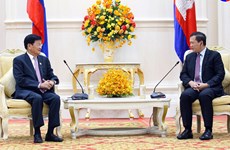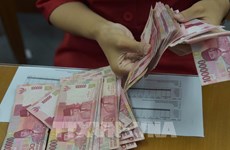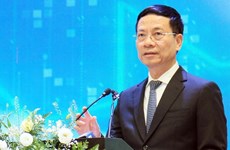Pangyo Techno Valley: Achieving 100 trillion KRW in sales
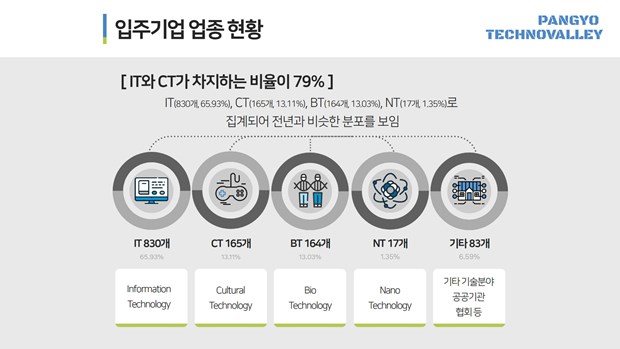
The statistics showed that 93 percent of the companies in Pangyo Techno Valley are high-tech, and 85.94 percent are SMEs. Their sales last year amounted to 107.2 trillion KRW.
On Sep. 2, Gyeonggi-do announced the results of a complete survey of companies in Pangyo Techno Valley conducted from last April to July by GBSA.
According to the survey results, there were a total of 1,259 companies in Pangyo Techno Valley as of the end of 2019. By industries, companies in high-tech industry made up of 830 IT companies (65.93 percent), 165 content technology companies (13.11 percent), 164 biotechnology companies (13.03 percent), and 17 nanotechnology companies (1.35 percent) took up 93 percent of all.
SMEs accounted for 85.94 percent of the resident companies. Mid-sized companies took up 7.23 percent and large companies took up 4.61 percent, the sum of the ratio of large and medium-sized companies increasing from 10 percent in 2018 to 11.84 percent.
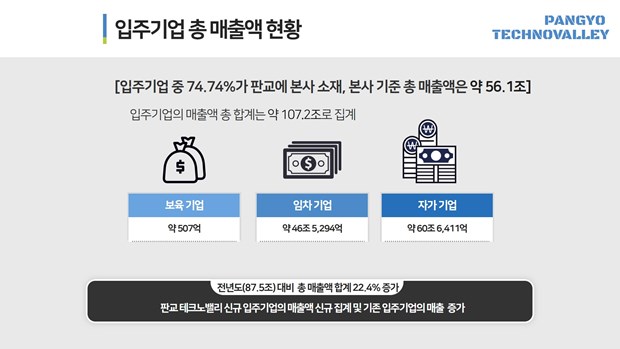
The sales of these resident companies in 2019 reached about 107.2 trillion won, an increase of 19.7 trillion KRW (22.44 percent) from 87.5 trillion KRW in 2018.
Of the 1,259 resident companies, 941 (74.74 percent) are headquartered in Pangyo Techno Valley, and the number of companies that are operating research centers is 674. The number of full-time workers was 64,497, an increase of 1,447 from 63,050 in 2018, and the main age group is 20s and 30s taking up 64.04 percent, making the younger generation being the major group.
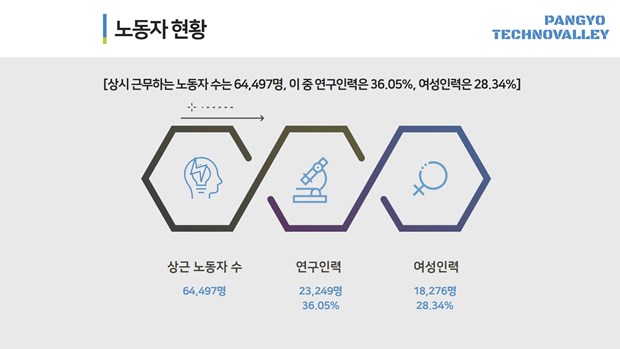
According to the survey, 19.44 percent of the workers lived in Bundang and Seongnam area where Pangyo Techno Valley is located, followed by 17.23 percent in Gwangju and Yongin, 16.62 percent in the southern part of Seoul, and 15.4 percent in Gwacheon, Uiwang, and Suwon. The top four areas of residence showed an increasing trend from 62.98 percent to 68.69 percent over the last three years, showing that a large number of executives and employees reside in areas where commuting is easy and public transportation is accessible.
Lim Mun-young, the Future Growth Policy Officer of Gyeonggi-do, said, "For Pangyo Techno Valley to take a bigger leap forward, it is necessary to analyze the current status of Pangyo Techno Valley and discuss the direction it should take to develop further. We will listen to the voices of the resident companies and make the effort to improve the environment."
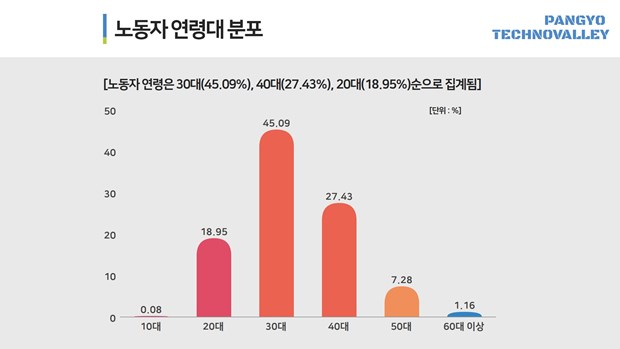
Gyeonggi-do is planning to use the results of this survey as data to improve the efficiency of complex operation and establish economic policies./.









